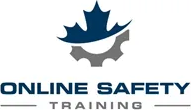Proper Cargo Securement Training

Securing Success: The Impact of Proper Cargo Securement Training on the Trucking Industry in Canada
In the vast expanse of Canada’s transportation network, the trucking industry serves as a vital lifeline, moving goods and commodities across the country’s diverse landscapes. However, ensuring the safe and secure transportation of cargo presents a significant challenge for trucking companies and drivers alike. Proper cargo securement is essential not only for compliance with regulations but also for protecting the safety of drivers, other road users, and the integrity of the goods being transported. This article explores the benefits of learning to secure cargo properly and its profound impact on the trucking industry in Canada, emphasizing safety, regulatory compliance, and operational efficiency.
- Enhanced Safety: Safety is paramount in the trucking industry, and proper cargo securement is crucial for preventing accidents, injuries, and fatalities on Canadian roads. Improperly secured cargo can shift, spill, or fall off vehicles during transit, posing serious hazards to drivers, pedestrians, and other motorists. By learning and implementing effective cargo securement techniques, truck drivers can minimize the risk of cargo-related incidents, ensuring that goods arrive at their destination safely and intact. Moreover, securing cargo properly enhances the stability and handling of vehicles, reducing the likelihood of rollovers, jackknifes, and other accidents caused by unbalanced or shifting loads.
- Regulatory Compliance: Compliance with cargo securement regulations is mandatory for trucking companies and drivers operating in Canada. Federal and provincial authorities, such as Transport Canada and provincial transportation ministries, have established strict guidelines and standards for securing different types of cargo based on size, weight, and characteristics. Failure to comply with these regulations can result in fines, penalties, and even the suspension of operating licenses, jeopardizing the reputation and viability of trucking businesses. Proper training in cargo securement ensures that drivers understand and adhere to regulatory requirements, mitigating legal risks and ensuring regulatory compliance at all times.
- Protection of Goods and Assets: In addition to safeguarding public safety, proper cargo securement is essential for protecting the integrity of the goods being transported and the assets of trucking companies. Unsecured or improperly secured cargo is vulnerable to damage, theft, and loss during transit, leading to financial losses, liability claims, and reputational damage for trucking companies. By investing in training programs that teach effective cargo securement techniques, trucking companies can minimize the risk of cargo damage and loss, protecting their bottom line and preserving the trust of customers and clients. Moreover, secure cargo enhances the efficiency of logistics operations, reducing the need for costly rework, replacement, or insurance claims.
- Reduction of Liability Risks: Trucking companies and drivers assume significant liability risks when transporting goods, particularly hazardous materials or high-value cargo. Inadequate cargo securement can exacerbate these risks, leading to accidents, spills, or environmental contamination that result in costly legal claims, cleanup expenses, and reputational damage. By prioritizing proper cargo securement training, trucking companies can mitigate liability risks and demonstrate their commitment to safety and compliance. Well-trained drivers are better equipped to assess and address potential hazards, implement preventive measures, and respond effectively to emergencies, minimizing the likelihood of incidents that could expose them to legal and financial liabilities.
- Operational Efficiency: Effective cargo securement practices contribute to operational efficiency in the trucking industry, optimizing the flow of goods and minimizing disruptions in transportation operations. Well-secured cargo is less prone to shifting or damage during transit, reducing the need for unscheduled stops, load adjustments, or delays caused by accidents or incidents. Moreover, properly secured cargo can be loaded and unloaded more quickly and efficiently, streamlining logistics processes and improving turnaround times for deliveries. By investing in training programs that focus on cargo securement best practices, trucking companies can enhance their operational efficiency, maximize fleet utilization, and deliver superior service to customers across Canada.
- Professional Development and Skills Enhancement: Training in cargo securement offers truck drivers an opportunity for professional development and skills enhancement, empowering them to excel in their roles and advance their careers in the trucking industry. Certified training programs provide drivers with comprehensive instruction on cargo securement regulations, techniques, and equipment, equipping them with the knowledge and skills needed to secure different types of cargo effectively. Additionally, ongoing training and refresher courses enable drivers to stay updated on industry best practices, emerging technologies, and regulatory changes, ensuring that they remain competent and proficient in their roles as cargo securement professionals.
Proper cargo securement is essential for ensuring safety, regulatory compliance, and operational efficiency in the trucking industry in Canada. By investing in training programs that teach effective cargo securement techniques, trucking companies can enhance driver safety, protect the integrity of goods, and minimize liability risks. Moreover, well-trained drivers contribute to operational efficiency, customer satisfaction, and professional development within the trucking industry. As Canada’s transportation network continues to evolve, the importance of proper cargo securement training will remain a cornerstone of safe and reliable freight transportation across the country.
